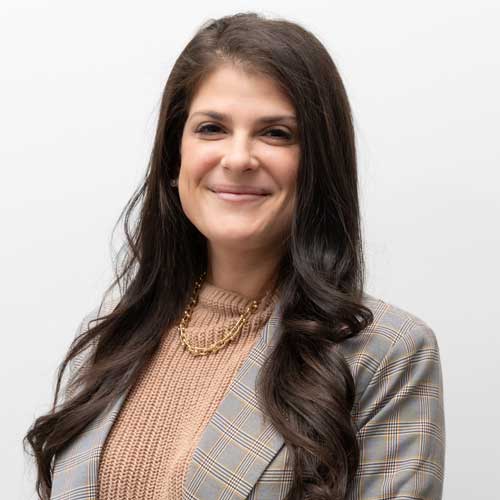For many people struggling with substance use, alcohol or drugs initially feel like the solution to overwhelming social anxiety. That first drink quiets the racing thoughts before a party. The drug makes conversation flow more easily. But what begins as self-medication often spirals into a cycle where addiction and anxiety feed each other, creating a co-occurring disorder that requires integrated, compassionate treatment to heal.
If you or someone you love is caught in this pattern, understanding the connection between social anxiety and addiction is the first step toward comprehensive recovery in a safe, supportive environment.
Understanding the Social Anxiety-Addiction Connection
Social anxiety disorder involves intense fear and discomfort in social situations, fear of judgment, embarrassment, or rejection. These feelings can be so overwhelming that many people turn to substances for temporary relief. According to the National Institute on Drug Abuse, co-occurring mental health conditions and substance use disorders frequently develop together.
The Vicious Cycle
While substances may provide short-term comfort, they ultimately worsen anxiety. The cycle begins when alcohol and drugs alter brain chemistry, increasing anxiety levels over time and disrupting the body’s natural ability to manage stress. As substance use continues, the consequences compound: damaged relationships, missed obligations, health problems, and financial difficulties create even more anxiety. This increased anxiety then drives more substance use, perpetuating a painful cycle that feels impossible to break alone.
The brain becomes dependent on external substances to manage what it once handled naturally, making it progressively harder to face social situations without chemical support. Over time, the very solution that once seemed to help becomes the primary source of anxiety itself.
Why Treating Both Conditions Together Matters
The Relapse Risk of Single-Condition Treatment
Attempting to treat addiction without addressing underlying social anxiety often leads to relapse. The anxiety that originally drove substance use remains unresolved, creating powerful triggers once someone completes treatment. Dual diagnosis treatment offers an integrated approach that addresses both conditions simultaneously.
The Ineffectiveness of Treating Anxiety Alone
Similarly, treating anxiety without addressing the physical and psychological aspects of addiction is ineffective because substances continue disrupting:
- Brain chemistry
- Emotional regulation
- Healthy coping mechanisms
Our Integrated Approach
At Berkshire Mountain Recovery, we recognize that addiction rarely exists in isolation. Research from the Substance Abuse and Mental Health Services Administration confirms that trauma, mental health conditions like anxiety and depression, and unresolved emotional pain frequently drive substance use.
Our compassionate, evidence-based treatment addresses these root causes alongside the addiction itself, providing comprehensive healing in a sanctuary environment.
How Comprehensive Treatment Centers Address Co-Occurring Social Anxiety and Addiction
1. Medical Detox with Mental Health Support
Recovery begins with safe, medically supervised detox in a comfortable, supportive environment.
What to Expect:
- 24/7 Medical Supervision – Ensures your physical safety and comfort while your body heals
- Simultaneous Mental Health Assessment – Our mental health professionals begin assessing anxiety symptoms from day one
- Integrated Treatment Planning – Developing a personalized plan tailored to your unique needs
Learn more about our medical detox services
This foundation of medical safety and compassionate care allows the healing process to begin, where both conditions receive attention from day one. You’re never alone during this difficult but essential step toward recovery.
2. Integrated Therapy Approaches
Evidence-based therapies effectively address both social anxiety and addiction when delivered by experienced, caring professionals:
Cognitive Behavioral Therapy (CBT)
CBT helps identify negative thought patterns fueling both anxiety and substance use, replacing them with:
- Healthier coping strategies
- Realistic perspectives
- Practical problem-solving skills
Exposure Therapy
Exposure therapy gradually helps you face anxiety-provoking social situations without relying on substances, building:
- Confidence in social settings
- Resilience through supported practice
- Natural coping mechanisms
Group Therapy
Group therapy provides a safe, supportive environment to:
- Practice social interactions
- Build meaningful connections with others who understand your journey
- Develop peer support networks
Explore our group therapy programs
3. Medication-Assisted Treatment When Appropriate
For some individuals, medication can help manage anxiety symptoms while supporting addiction recovery.
Our Approach:
- Careful Evaluation – Our medical team assesses whether medication-assisted treatment is appropriate for your situation
- Symptom Management – Ensuring medications effectively manage symptoms without creating new dependencies
- Evidence-Based Protocols – Following guidelines from the American Psychiatric Association for comprehensive, individualized approaches to co-occurring disorders
4. Holistic Approaches for Comprehensive Healing
Our sanctuary setting in the Berkshire Mountains offers a peaceful natural environment that promotes healing for mind, body, and spirit.
Holistic Modalities Include:
- Mindfulness practices – Cultivating present-moment awareness
- Meditation – Calming the nervous system
- Yoga – Connecting mind and body
- Nature-based activities – Harnessing the healing power of the outdoors
These approaches help calm the nervous system, reduce anxiety, and develop healthy coping mechanisms that extend beyond traditional talk therapy.
Building Long-Term Recovery Skills
Effective treatment doesn’t just address current symptoms; it equips you with tools for lasting recovery and a fulfilling life:
Essential Recovery Skills
- Stress Management Techniques
- Replace substance use with healthy coping mechanisms
- Learn about managing stress during recovery
- Social Skills Development
- Navigate situations that previously triggered anxiety and substance use
- Build confidence in social interactions
- Relapse Prevention Planning
- Identify personal triggers
- Create effective response strategies
- Develop emergency action plans
- Aftercare Planning
- Ensure continued support after residential treatment
- Build community connections
- Explore our aftercare planning services
Finding Hope in Compassionate, Comprehensive Treatment
Recovery from co-occurring social anxiety and addiction is possible with the right support. You don’t have to face this alone.
What Makes Treatment Effective?
Effective treatment addresses both social anxiety and addiction simultaneously. Treating only one condition leaves the other to fuel relapse and undermine recovery.
It also tackles the root causes of the trauma, pain, and mental health issues driving both conditions. Surface fixes don’t last; resolving deeper issues creates real change.
Your treatment team must understand how anxiety and addiction fuel each other in your specific situation, creating interventions that break the cycle.
Finally, personalized care matters. Your treatment plan should reflect your unique story, not a one-size-fits-all approach.
This comprehensive approach provides the foundation for lasting healing and a life free from anxiety and addiction.
Take the First Step Toward Recovery
If you’re struggling with social anxiety and substance use in Massachusetts or the Eastern U.S., medically-supervised detox and comprehensive dual diagnosis treatment in our peaceful Berkshire Mountain sanctuary can help you break free from this cycle.
Ready to Begin Your Healing Journey? Contact Berkshire Mountain Recovery today to learn more about how our integrated, compassionate treatment approach can address both social anxiety and addiction.
Sources:
[1] https://nida.nih.gov/research-topics/co-occurring-disorders-health-conditions

Alexis earned both a B.S. in Psychology and a B.S. in Family and Child Sciences from Florida State University and an M.A. in Marriage and Family Therapy from the University of San Diego. She holds licenses in Marriage and Family Therapy in Florida, Connecticut, and Massachusetts and is also a member of the American Association for Marriage and Family Therapy (AAMFT).
Alexis works with families, couples, children, and groups and also has a sub-specialty in addiction and recovery. She utilizes an integrated, systemic approach to counseling; empowering people to define what is not working for them in their lives and to discover the possibilities for making life work. In doing this, clients are guided towards identifying their strengths, accessing their resources, tapping into their potential for success, and taking action toward achieving their desired goals.
Alexis also has extensive experience in the administration of behavioral health organizations. She has developed, built, and supervised several facilities encompassing all levels of care while leading them through state licensing and The Joint Commission accreditation process.












